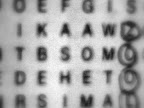Washington Post tea party investigation: good research, not great analysis
Sunday's Post has an extensive investigation of the tea party; they contacted hundreds of groups across the country, all that they could, to survey them. Kind of impressive.
The conclusions are interesting and up for varying interpretations.
The Post says at the outset that tea parties have "[upended] the existing political order, reshaping the debate in Washington, defeating a number of prominent lawmakers and elevating a fresh cast of conservative stars." I think that's basically right.
And then after that here's the primary findings of the investigation:
It's interesting that 70 percent haven't "campaigned" -- and hard to know what to make of that. Are the other 30 percent doing all that campaigning that is having such a big effect in GOP primaries? Perhaps. Or maybe what they define as campaigning is different from what others do. Certainly tea parties have had a huge effect on these primaries; maybe it wasn't through traditional "campaigning" activities, though.But a new Washington Post canvass of hundreds of local tea party groups reveals a different sort of organization, one that is not so much a movement as a disparate band of vaguely connected gatherings that do surprisingly little to engage in the political process.
...
Seventy percent of the grass-roots groups said they have not participated in any political campaigning this year. As a whole, they have no official candidate slates, have not rallied behind any particular national leader, have little money on hand, and remain ambivalent about their goals and the political process in general.
Anyhow, the part I disagree with is how the Post belittles the tea party for being fairly non-hierarchical. I'm talking these parts: "not so much a movement as a disparate band of vaguely connected gatherings that do surprisingly little to engage in the political process..." and "...no official candidate slates, have not rallied behind any particular national leader, have little money on hand, and remain ambivalent about their goals..."
Washington and much of the press just can't get this decentralized thing, or the thing about being politically involved in ways other than through elections.
Of course, in this country we have a rich history of many social movements that have been decentralized and non-hierarchical. And at one point widespread engagement in the democracy was not just about voting (or giving money to candidates!) but about so much more.
The Post is having trouble getting that most of these tea partiers, according to the Post's investigation, want to stay independent of the GOP and also do not want to incorporate as a political party. That they remain independent, without an official leadership structure, is something the Post sees as a problem to be fixed. The Post even thinks these characteristics of decentralization make the tea party "not so much a movement."
The tea partiers have had an impressive (in a bad way) influence. That they have done this in a relatively independent way should be a lesson that independence can be powerful.


0 Comments:
Post a Comment
<< Home